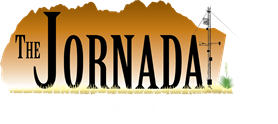| Title | The effects of ruminal escape protein or fat on nutritional status of pregnant winter-grazing beef cows |
| Publication Type | Journal Article |
| Year of Publication | 1990 |
| Authors | Miner J.L., Petersen M.K., Havstad K, McInerney M.J., Bellows R.A. |
| Journal | Journal of Animal Science |
| Volume | 68 |
| Pagination | 1743-1750 |
| Date Published | 1990 |
| Keywords | beef, blood chemistry, cattle, protein supplements |
| Abstract | This study was designed to determine the influence of soybean meal supplementation, with or without additional ruminal escape protein or fat, on the nutritional status of pregnant winter-grazing beef cows. During two winters (Trials 1 and 2), approximately 60 prepartum beef cows grazed native foothills range each year. Cows were allotted randomly to five groups and supplemented (g/d) with either none (control); 570 soybean meal (SOY); 450 soybean meal plus 230 blood meal (SOY + BM); 140 soybean meal, 16 urea plus 450 corn gluten meal (SOY + CGM); or 570 soybean meal plus 210 animal fat (SOY + FAT). These supplements were designed to supply similar quantities of ruminal degraded protein while varying in escape protein quantity and source (SOY + BM and SOY + CGM). Condition scores and body weights were determined at trial initiation (mid-December) and conclusion (early March). Eight blood samples obtained over 4 d during three periods (9, 4 and 1 wk prior to parturition) were analyzed for concentrations of glucose, urea nitrogen (N), total bilirubin, creatinine, albumin, total protein and cholesterol. Cows in the control treatment experienced the greatest BW loss in both trials. In Trial 2, escape protein tended to decrease (P<.06) BW loss compared to SOY, though loss tended to be greater (P<.08) with SOY + CGM than with SOY + BM. Escape protein can enhance nutritional status when supplemented with .6 kg/d of soybean meal. |
| URL | /files/bibliography/703.pdf |


